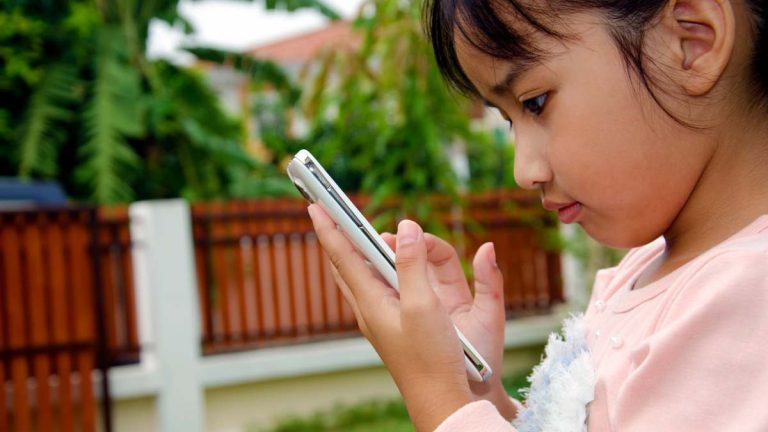The effects of screen time on children’s behavior and sleep


In today’s digital age, screen time has become an integral part of children’s lives. From educational apps to entertaining videos, screens offer a world of information and engagement. However, it’s crucial to recognize that prolonged screen time can have significant impacts on children’s behavior and sleep. In this article, we’ll delve into the effects of excessive screen use, understand the recommendations set forth by experts, and explore practical ways to strike a healthy balance.
Also check out our extensive guide about Responsible Use Of Social Media For Children.
Research has revealed a concerning link between prolonged screen time and negative effects on children’s behavior and sleep. The repercussions are multifaceted:
Excessive screen time has been associated with heightened symptoms of attention deficit hyperactivity disorder (ADHD). Beyond that, it can impede the development of crucial social skills and communication abilities. When children spend more time engrossed in screens, they miss out on face-to-face interactions that foster empathy, effective communication, and conflict resolution. The consequence? A potential decline in social skills that are vital for building healthy relationships throughout life.
The blue light emitted by screens poses a significant challenge to sleep quality. Melatonin, the hormone responsible for regulating sleep, is sensitive to this light. Prolonged exposure to screens, especially before bedtime, can interfere with melatonin production, leading to difficulties falling asleep and staying asleep. Inadequate sleep not only affects children’s mood and cognitive abilities but also impacts their overall growth and development.
Explore further insights on sleep in our related article: “Tips And Strategies To Help Your Child Sleep Through The Night.”
An excess of screen time often translates into a sedentary lifestyle. Physical activity takes a backseat, paving the way for a range of health issues. Obesity, poor posture, and eye strain are among the potential consequences. Additionally, disrupted sleep patterns contribute to a cascade of health concerns, underscoring the importance of addressing screen time as part of a holistic approach to children’s well-being.
While screens can offer educational content, excessive exposure can hinder cognitive development. The ability to focus, retain information, and engage in critical thinking can all be compromised. It’s crucial to strike a balance between screen-based learning and other forms of intellectual stimulation that promote holistic cognitive growth.
The impact of excessive screen time on mental health is a growing concern. Overstimulation of the brain and the allure of constant digital engagement can lead to feelings of anxiety, depression, and social isolation. Children might find it challenging to regulate their emotions and behavior due to the hyperactive nature of screen-related activities.
Explore further insights into mental health by reading our related article: “Mental Health Awareness For Kids: Understanding Stigma And Overcoming It.”
Recognizing the potential pitfalls of screen time, The American Academy of Pediatrics offers guidelines to steer children toward healthier habits:
From 18 to 24 months: It’s recommended to restrict screen time to educational programming, with the presence of a caregiver.
For children aged 2-5 years: Limit screen time to 1-2 hours per day.
For children aged 6 years and older: Aim for no more than 2 hours of screen time daily.
Moreover, establishing a consistent bedtime routine that involves disconnecting from screens at least an hour before sleep can help facilitate melatonin production, leading to better sleep quality.
Designated Screen Time: Set designated periods for screen time to ensure a balanced routine that includes physical activity, social interaction, and other enriching experiences.
Tech-Free Zones: Designate certain areas in the house as tech-free zones, such as the dining room or bedrooms, to encourage face-to-face interactions and relaxation.
Outdoor Play: Prioritize outdoor playtime, which not only boosts physical health but also fosters creativity and problem-solving skills.
Parental Role Modeling: Parents should lead by example and demonstrate healthy screen habits themselves.
Educational Content: Encourage children to engage with high-quality educational content that sparks curiosity and critical thinking.
Mindful Bedtime Routine: Create a calming bedtime routine that involves non-screen activities like reading, storytelling, or gentle stretches.
In conclusion, screens are here to stay, but their impact on children’s behavior and sleep warrants mindful consideration. By adhering to expert recommendations and implementing practical strategies, we can help children navigate the digital landscape while fostering healthy development in all aspects of their lives.

Uncover social media’s effects on teen mental health. Tips for responsible use and parental guidance included.
Comment (1)
canadian pharmacies online
I like the valuable information you provide in your articles. I will bookmark your blog and check again here frequently. I am quite sure I’ll learn many new stuff right here! Good luck for the next!